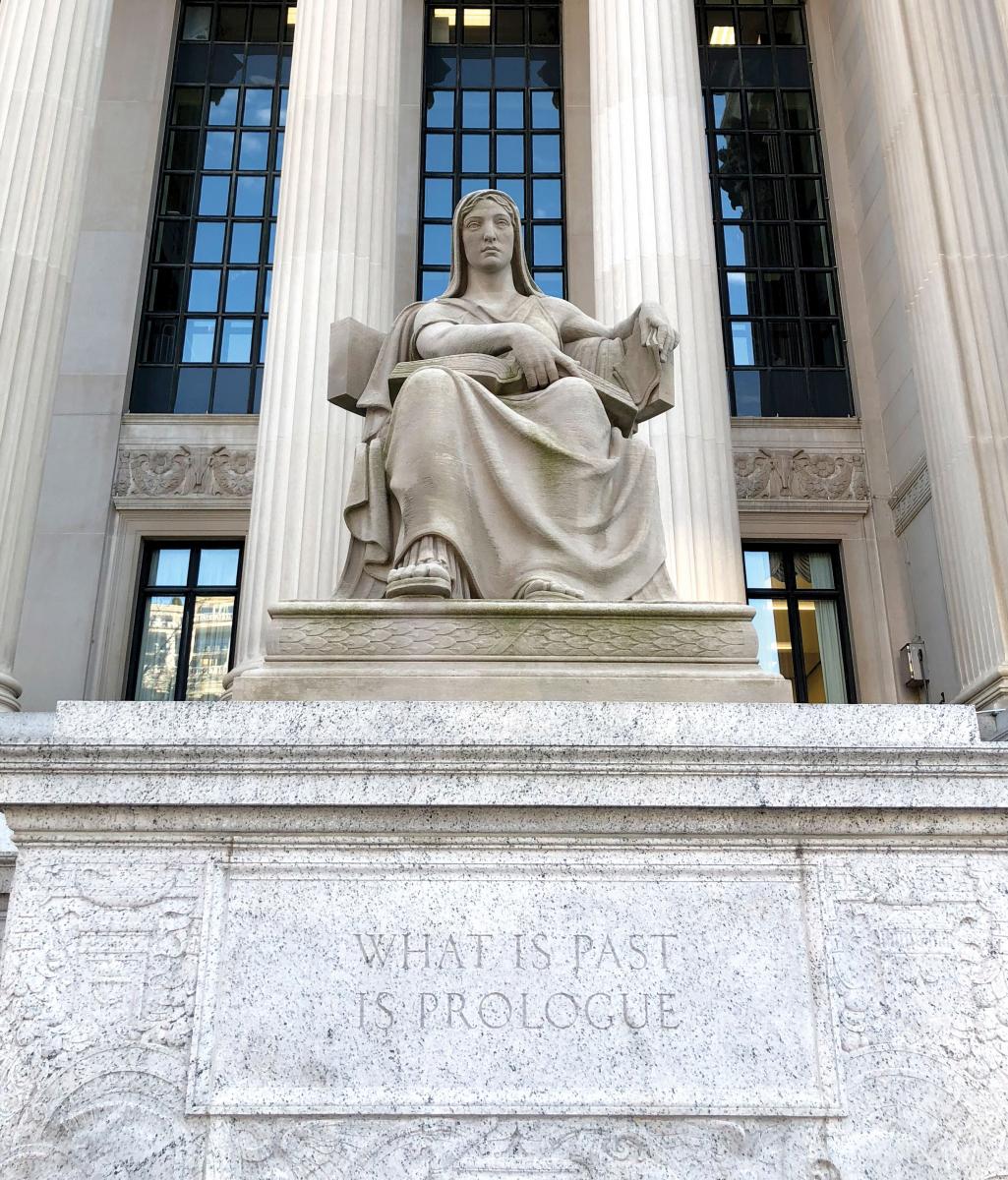by Akim Reinhardt
 Is the Past Prolog? I’m not convinced. I say this as a professional historian.
Is the Past Prolog? I’m not convinced. I say this as a professional historian.
The main problem, of course, is that there are many pasts. They are defined by temporality, by subjectivity, and by the limits of knowledge.
The past is ten seconds ago. Ten minutes, ten days, ten weeks, ten years, ten centuries. Which past is prolog to which present?
There is no one past. There are countless pasts. Mine. Yours. The billions, or at least millions, of people who were alive at any given moment. The great, great majority of them never meeting or even knowing of each other, having no discernible influence on each other. Humans can be worldly, but never really universal. Whose past is prolog to whom?
Yet even the shared pasts are contested. Because the past is no different than the present in at least one important aspect: it is experienced subjectively. Like the classic Akira Kurosawa film Roshomon, or the countless sitcom shows that borrowed its premise for a chicanery-riddled episode of mutual misunderstanding, there is no one version. Each person had their own. Their own vantage point, their own experiences, their own filters and agendas, their own limits and baggage, their own abilities and inabilities to understand what they see, feel, hear, and hear of. And even under the most favorable circumstances, every person does what every person must do: interpret.
There is a science of life, but life itself is no science. We need to invent and give meaning to what we do and experience. It is an unavoidable feature of the human condition. Our perceptions and understandings of human affairs are subjective. What contested past is prolog to what contested present? Read more »
